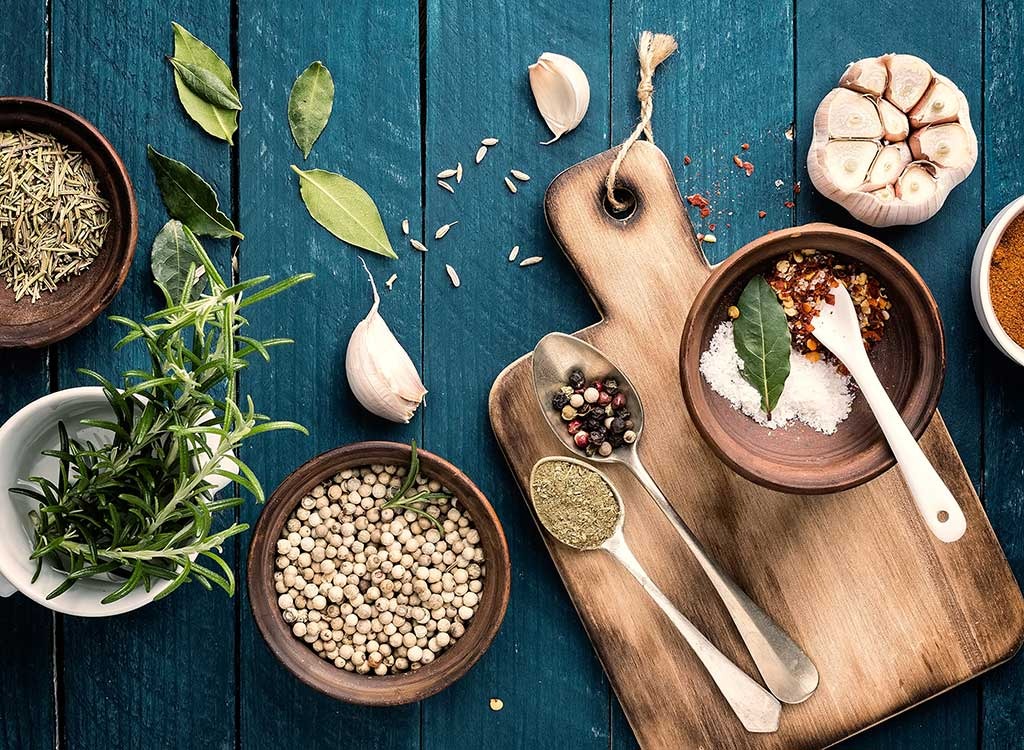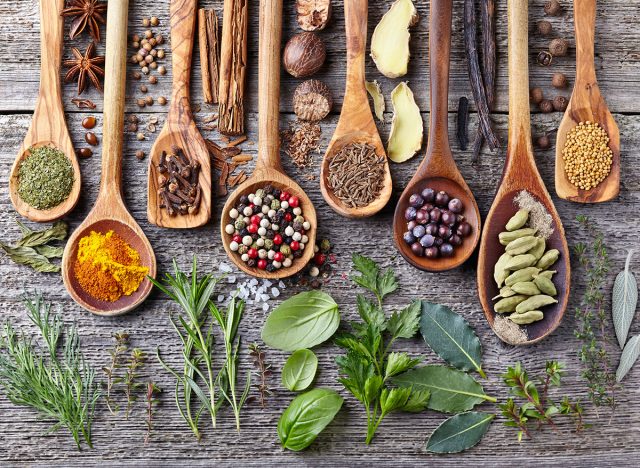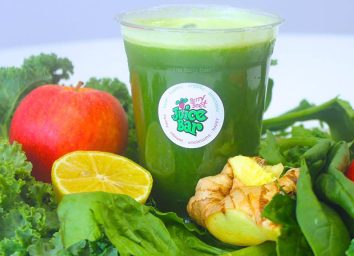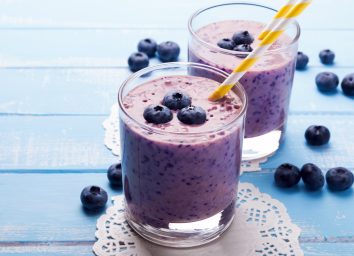This Secret Eating Habit Can Help You Age Healthier, New Study Says

As we age, controlling sodium intake becomes more important than ever in order to reduce cardiovascular health risks—but eliminating too much salt may cause food to taste bland.
Good news: You can boost flavor while still lowering salt intake by focusing on adding more spices and seasonings, according to a new study in the journal Food Quality and Preference.
Researchers recruited 39 participants between the ages of 60 to 85 and served them three formulations of Cajun chicken-style white sauce: one with no added herbs, one with herbs, and one with herbs and chipotle seasoning. Each sauce had five different salt concentrations.
They found that the blend with both herbs and chipotle seasoning made it challenging for participants to pinpoint the amount of salt used, while the sauce with only herbs made it easier for them to detect low-salt options.
That means trying to substitute herbs only for salt may fall short, and cause you to keep reaching for that salt shaker, according to lead researcher Carolyn Ross, PhD, professor of food sciences at Washington State University. But using other types of salt-free seasonings may give you the flavor you crave while keeping sodium on the lower side.
“The takeaway from this research is that it’s important to tailor seasoning to your taste,” Ross tells Eat This, Not That!. “This is important because the ability to taste and smell is known to weaken with age, and that can lead people to season food with excessive salt, which may increase risk of cardiovascular disease.”

Another major plus is that seasoning isn’t just for flavor—it can actually provide a health boost on its own. For example, a 2017 study in the journal Antioxidants notes that spices and herbs are rich sources of antioxidants, which have the ability to reduce oxidative stress in the body.
This type of stress has been linked to a variety of diseases including cancer and heart disease, as well as accelerated aging, that research noted. The study added that everyday herbs like rosemary, sage, and oregano can be particularly potent for adding more antioxidants to your meals.
As you’re working to reduce salt by playing around with herbs and seasonings, Ross says it’s important to address other age-related factors as well, particularly your oral health and your medication mix. The reason for addressing these, she adds, is due to how your saliva is playing a role in salt levels.
“In our analysis, we saw a correlation between poor oral health and the number of medications each participant was taking, which could be the result of less saliva production,” she says.
That means reducing your sodium may involve a multi-level approach: add more seasoning, get a medication review, and keep on top of dental checkups.
For more on lowering your salt intake, check out 14 Best Low-Sodium Canned Soups for Heart Health, Approved by Dietitians.









